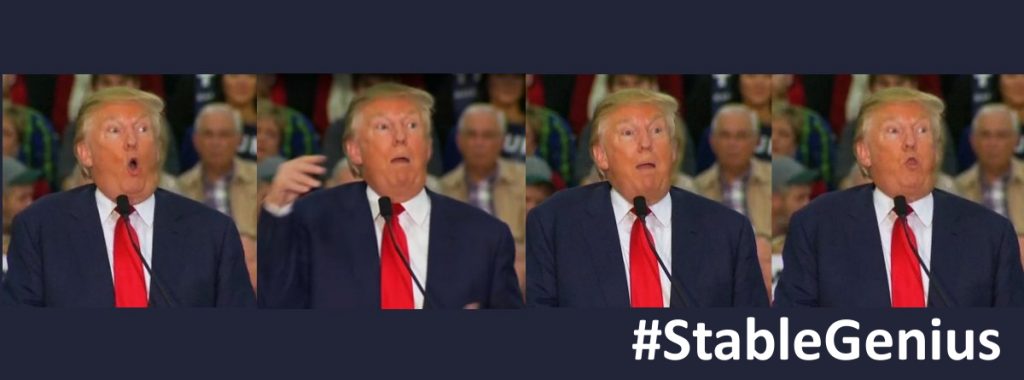What a muddled mess the Iowa addlepated and antiquated caucus system is!!!
I’ve just been trying to look into the details of how it works to understand how someone can win the popular vote there and still not win the largest number of delegates.
It seems the reason is a combination of a convoluted process of calculations on different levels.
First you have what happens at the caucus itself.
People attending a caucus show who they support by physically gathering together with others there who support the same candidate for what’s called the “first alignment.” Then the number of people supporting each candidate is counted to determine which candidate is “viable.” In order to be viable, a candidate must have at least 15% of the number of people attending that caucus. If a candidate isn’t viable, then that candidate’s supporters have a few options….
They can realign with one of the other viable candidates, they can negotiate with others supporting nonviable candidates to try to make one of the other nonviable candidates viable by creating new alignments, or they can stop participating by staying where they are or going home.
While people supporting nonviable candidates can realign, people supporting viable candidates can’t, so only nonviable candidates are up for grabs.
Only viable candidates will receive any delegates.
When everyone is finished negotiating and realigning, another count is made to record the “final alignment.”
To determine the number of delegates each viable candidate at that caucus will receive, you take the number of the candidate’s supporters times the number of preassigned delegates for that particular caucus. Then you divide that result by the number of people attending the caucus. Fractions 50% and over get rounded up and fractions below get rounded down.
Depending on the specific circumstances, a viable candidate who has the greatest number of people aligned with them in both the first and final alignments could still end up with the same number of delegates as another viable candidate who had the least. For example, if the math result is 2.48 for one candidate and 1.52 for another, they both get 2 delegates.
So a candidate could start out as nonviable after the first alignment at a specific caucus, win over enough people supporting other nonviable candidates to become barely viable by the final alignment, and still end up with the same number of delegates as the candidate who had the largest number of supporters aligned with them in both the first and final alignments.
Now that part might be easier to understand than what comes next regarding the “delegates,” and while it can explain why a candidate who received the largest number of votes might receive the same number of “delegates,” it doesn’t explain why they might end up with fewer.
There seems to be more than one type of “delegate” at play….
County Delegates: Each county gets to determine how many delegates they will have at their convention (out of the 99 county conventions across the state). So even if two counties have the same size population, they can have a different number of delegates showing up at their respective conventions. Each individual precinct caucus in each county gets a preset number of delegates to select to send to their county convention based on the total they want to have.
State Delegates: Each county has a preset number of delegates they can send to the state convention. This number is determined by averaging the number of votes that its attendees cast for Democratic nominees in the most recent gubernatorial and presidential races.
State Delegate Equivalents: To determine this you convert the individual precinct results to the number of county delegates to an estimate of the number of state convention delegates to get the answer. So ten delegates from a precinct caucus could end up as a faction of one state delegate (0.83 of a state delegate, for example). Then that number is divided by the percentage for each candidate, which may likely result in a fraction of a fraction. So all the delegates coming out of a particular precinct caucus for a particular viable candidate may result in a State Delegate Equivalent of 0.23. Add all these up for all the caucus locations and you get the State Delegate Equivalent for each candidate.
There must be some example of how with all this realigning; rounding up and down; dealing with fractions, percentages, averages, and so on to sort out the delegates; etc. somehow results in the candidate with the most support ending up with fewer delegates than someone with less support. I honestly don’t have the energy to try to figure out how it happens by running different scenarios until I can provide one to demonstrate how this might work (maybe Yang could help here).
I know there is at least one other thing that I’ve skipped over that could provide at least part of the explanation but I don’t think could be responsible for all of it. That is: the coin tosses when supporter counts are tied. Yes, that’s a real thing. Reports are that this happened in several precincts on Monday night. In one case of a three-way tie, names were drawn out of a hat!
Regardless, now we get to…
National Convention Delegates: Based on the State Delegate Equivalents, the delegates are allotted proportionately to the 41 pledged delegates Iowa has to go to the National Convention. The 41 delegates from Iowa are about 1% of the total of all national delegates. So what each candidate was fighting for in Iowa was to see who might end up with the largest fraction of 1%.
In other words, the results from Iowa are practically irrelevant aside from the fact they are the first state to have some results, as well as whatever PR value might be gained from that to leverage into future contests.
It’s said that you can have three winners coming out of Iowa: the winner of the first alignment votes, the winner of the final alignment votes, and the winner of the State Delegate Equivalents (which is the one most featured despite being practically irrelevant).
But, as a result of the mess that has resulted from the app failure, the situation regarding who really “won” has become even more problematic.
When it first became evident that it was going to be at least a day before we got any results, Pete Buttigieg declared victory. Indications at the time were that he may have done well, possibly placing first or second, but declaring victory gained him almost the same amount of attention and PR as he might have received had the final results shown him to be the clear winner. The next day when only 62 percent of precincts were reporting, it did show him very slightly ahead of Sanders with the largest percentage of State Delegate Equivalents, with Sanders leading in the popular vote (in both the first and second alignments). As of this writing, there is still only 71% reporting with Buttigieg holding a 1.6% lead over Sanders, and with Sanders still ahead in the popular vote in both alignments.
Of the all the candidates Buttigieg still seems to be getting the best PR from the mainstream media out of Iowa. His name is the one featured most in the headlines (e.g.: “Buttigieg Has The Lead In Iowa”). Watching Sky News last night I saw a report presenting the news as if the results were final and Buttigieg had won. There was no mention at all that the results weren’t all in yet, or anything about the popular vote.
The continuing delay has resulted in any further coverage getting put on the back burner with news about the State of the Union and the Senate impeachment process burying it as we move on to other things. CNN’s website had the ongoing results from Iowa prominently displayed on their home page since Monday, but it’s gone from there now. Maybe it will return whenever Iowa reports any new results, but right now I’m wondering how long that might be, and how long until we see the final results. By the time we do, most people may have moved on and been left with the impression that Buttigieg won.
Maybe when all the results are in we’ll see that Buttigieg deserved all the attention he’s received, and maybe it will show something else. We’ll just have to wait.
But just by looking at the results we have so far, it appears: Buttigieg’s support was significantly boosted in the final caucus alignment by supporters of nonviable candidates from the first alignment, that he didn’t have nearly as many committed supporters coming into the caucuses as Sanders had, and that somewhere lost in the math is how he’s managed to currently place barely ahead of Sanders in State Delegate Equivalents.
If these results hold, this becomes just another example of how real democracy is undermined by the system we have in place. It also becomes yet another argument against caucuses that can be added to its other problematic aspects–that I didn’t even address above–which have to do with the barriers of even participating in a caucus the first place.
In many of the most important respects: Trump won the Iowa Democratic Caucuses and the People lost.





 LIKE A SMART PERSON
LIKE A SMART PERSON